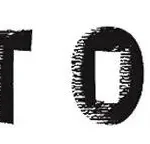COURT HOUSE – At Middle Township Board of Education’s July 15 meeting, the district’s policy regarding home–schooled students and team athletics was challenged by the family of a soon-to-be ninth grade home–schooled student, who wants to play for the high school’s soccer team.
The district’s policy, one shared by many other school districts, is that home–schooled students are not eligible to participate in public school sports.
Up until a decade ago, that was a statewide policy. In 2011, the New Jersey State Interscholastic Athletic Association (NJSIAA) changed its rules and permits home–school student participation in team sports.
The catch in that policy change is that the student must have the district school board’s approval. In most cases in the state, getting school district approval is the hurdle students can‘t seem to overcome.
Background
Home schooling is a legal instructional option in all 50 states. National Center for Education Statistics (NCES) data show that nationally, the percentage of home–schooled students increased from 1.7%, in 2000, to 3.3%, in 2016. The pandemic drove more families to choose home schooling over various combinations of in-person and virtual instruction.
In New Jersey, NCES reports that the percentage of home–schooled students rose from 4.7%, from April to May 2020, to 10.7%, from September to October 2020.
Federal data also indicates some of the reasons families elect this non-standard option (https://bit.ly/3fehJRO).
First and overwhelmingly, the families are reacting to concerns about the school environment; 91% give this reason. They cite safety, drug use, and negative peer pressures as evidence of this concern.
The second reason referenced by 74% of home schooling parents is dissatisfaction with the level of academic instruction in the school. This is often related to the parental perception that the student is bright and will benefit from a personalized approach to instruction.
Third of the top three reasons, with 64% of home schooling parents citing it, is a desire to include religious instruction in the curriculum. If you expand the concern for religious instruction to a desire for increased moral education, the percentage jumps to 77%.
Middle Township
In Middle Township, the issue before the school board is simply stated – can a student whose family has elected home schooling as a perfectly legal option join his school district for sports or other extracurricular activities?
Parents argue that they pay the same taxes, they are not placing new burden on the school, and the association that regulates high school athletics has said these students can play.
The school argument is that district officials are trying to keep the playing field level by ensuring all participants in extramural and athletic programs meet the same eligibility requirements.
Since the district says it has no way to ensure that a home–schooler has met the requirements, especially the academic ones, the policy is to not allow them to participate.
Austin Johnson, a graduate of Middle Township High School and a past member of the school’s soccer team, July 15 spoke in favor of his nephew, Wyatt Hand. Johnson’s sister, Sheena Hand, and her husband, Jonathan, owner of Jonathan Hand Excavating, in Court House, decided to home–school Wyatt, who is about to begin the equivalent of ninth grade in fall.
The family has Middle Township roots and wants Wyatt Hand to participate in the school district’s athletic programs. They have even begun a petition, which had 284 signatures six days after it went live.
Johnson said the July 15 discussion did not go well because Superintendent David Salvo broadened the issue and used it to express negative views about home schooling in general.
Salvo stated the district “understands and values the individual rights of parents to choose the education that they believe is best for their children and family.”
New Jersey has around 600 public school districts across 566 municipalities. Leaving each school district to make its policy means some can feel, as Johnson does, that decisions are as reflective of general attitudes on home schooling as they are on the difficulties of monitoring eligibility rules.
For Johnson, the battle being fought is one that was already decided when home schooling became a legal instructional option in the state.
Several states passed equal access laws permitting home–schooled students access to school programs, but with varying circumstances. A few states specifically do not allow such access. For the majority, the situation is like New Jersey, with school districts making decisions for students who live within their geographic boundaries.
In New Jersey, the NJSIAA states, “The home–schooled student must adhere to the same standards of behavior, responsibilities, and performance as other members of the team,” making it sound as though the decision would be made on an individual student-by-student basis, but many districts have flatly denied home–schooled students access to the programs, essentially saying that they, as a district, have no way to ensure that the standards are being met.
This is a battle that will undoubtedly continue. In Hand’s case, his uncle, Johnson, states, “We are not backing down, have lawyers involved, and are getting strong support from key community members.”
This is the way home schooling has progressed to date, with believers in an alternative instruction option energized by a set of concerns with the public school system, fighting for new flexibility and acceptance.
To contact Vince Conti, email vconti@cmcherald.com.








